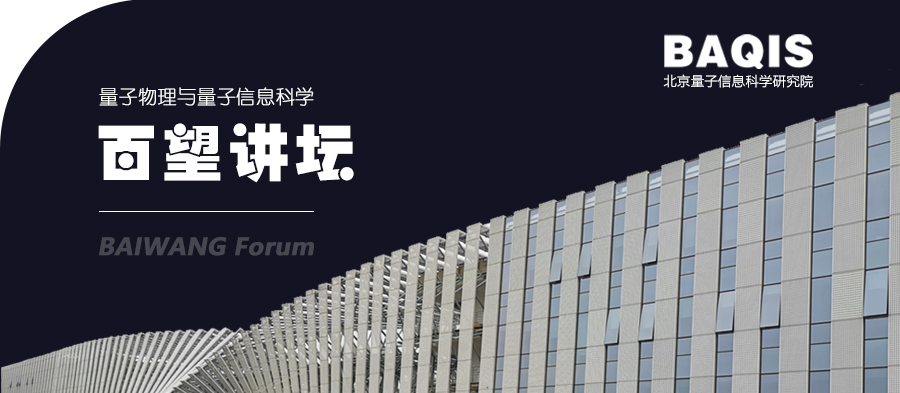Baiwang Forum 43: Near-Landauer-Bound Quantum Computing Using Single Spins
2023/05/18

Date and Time: 18-May-2023 15:00
Venue: Room 320
Speaker: Prof. Frank Zhigang Wang (Frank Wang), University of Kent, UK
Host: Hongqi Xu (PKU&BAQIS)
Title:Near-Landauer-Bound Quantum Computing Using Single Spins
Abstract:
This study is the first experimental verification of Landauer's bound on a single spin, which is the smallest information carrier in size. We used four experiments (single spin experiment, giant spin experiment, nanomagnet experiment and Stern-Gerlach experiment) to demonstrate that a single spin was much more energy-efficient than other information carriers due to its small size and weak coupling with the surroundings. We conclude that quantum spintronics, with single spins as qubits, is an energy-efficient computing paradigm that requires the smallest amount of energy (1.2 × 10 -26 J per spin qubit, close to the theoretical Landauer bound of 9.6 × 10 -27 J at 1 mK ) to perform computations.
About the Speaker:
Frank Z. Wang (M’96–SM’00) is a Professor in Future Computing and the Head of the School of Computing (2010-2016), University of Kent, UK. Professor Wang's research interests include quantum computing, artificial intelligence, neuromorphic computing, non-Turing architecture, memristors as a new computing paradigm, unconventional computing, brain-like computer, deep learning, green computing, grid/cloud computing, and data storage & data communication, etc. He has published intensively on top journals, including IEEE Transactions on Computers, ACM Operating System Review, IEEE Transactions on Quantum Engineering, Quantum Information Processing (Springer Nature), Neural Networks, Information Sciences, IEEE Transactions on Circuits and Systems, Applied Physics Letters, IEEE Electron Device Letters, Journal of Applied Physics, and top conferences, including ACM/IEEE SuperComputing, IEEE Big Data, IEEE Mobile Services, EuroPar, IC, and IEEE Non-Volatile Memory.
So far, he has attracted research fundings over £5m from the UK government and the European Commission. Professor Wang has chaired over 10 international conferences/symposiums. He is a regular keynote/invited speaker worldwide, for example at Princeton University, Carnegie Mellon University, CERN, Hong Kong University of Sci. & Tech.,
Tsinghua University (Taiwan), Jawaharlal Nehru University, Aristotle University, and the University of Johannesburg. In 1996, Frank designed and developed a new type of random access memory using the spin-tunnelling effect at Tohoku University, Japan. This device was the first of its kind worldwide. Frank obtained his PhD degree in the UK in 1999. Only 5 years after his PhD degree, he was appointed Chair Professor and Director of the Centre for Grid Computing at CCHPCF (Cambridge-Cranfield High Performance Computing Facility). CCHPCF is a collaborative research facility at the Universities of Cambridge and Cranfield (with an investment size of £40 million). Prof Wang and his team won an ACM/IEEE Super Computing finalist award in USA in 2007. Between 2017 and 2018, he spent his sabbatical at Tsinghua University. Prof. Wang is a Fellow of the British Computer Society. He is the Chairman (UK & Republic of Ireland Chapter) of the IEEE Computer Society. Professor Wang is also the IEEE Computer Society Region 8 Area 2 Coordinator in charge of over 10 western European countries including the UK, France, Germany, Ireland, Netherlands, Luxemburg, Belgium, Denmark, Switzerland, Spain, Portugal, Austria and Iceland. He sat on the UK Government EPSRC e-Science, Hardware for Efficient Computing and ICT Panels and the Irish Government High End Computing Panel for Science Foundation Ireland (SFI).
 中文
中文 Email
Email QCloud
QCloud Log in
Log in
